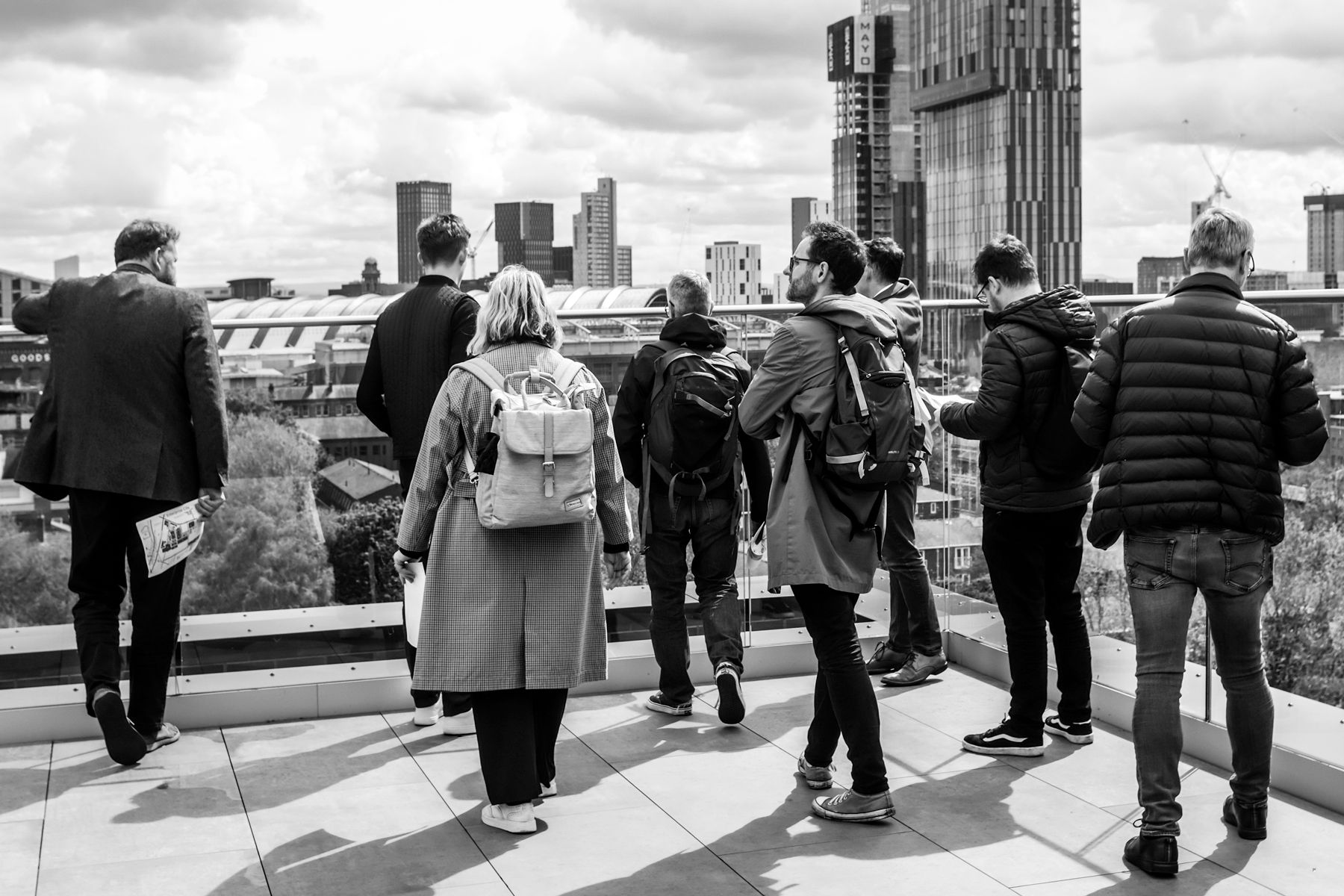In our most recent roundtable, the panel looked at cultural shifts in how we live and work and how placemakers should reflect these changes. These changes include greater flexibility and hybrid working. They impact across sectors. Plus, there are significant implications for how placemakers themselves will work in the future.
The Elephant in the Room
On its website, CIPD quotes ONS figures that show only 5% of the workforce worked mainly from home, pre-pandemic. 65% of employers didn't even offer this option to their staff. During the pandemic, this figure nearly halved.
"Post-pandemic, we’re all still adjusting. Hybrid working is very much the buzzword, where agile working becomes the new normal."
But some forms of work cannot adjust to agile working practices. The new hybrid workplace will work for some industries but not for others. Healthcare, construction, engineering and manufacturing are all industries that will find it difficult, or even impossible, to offer hybrid working arrangements to their employees.
Hybrid certainly has its evangelists, but by its very nature, it doesn't lend itself to blanket solutions. Adaptability to individual circumstances is vital, but in some industries, the collective, on-site workforce remains core to efficiency and productivity. This has implications for the future of infrastructure such as public transport. It is especially true where flexible working has reduced demand and patronage. It’s a potential minefield for future planning.
On the one hand, good placemaking looks at supporting infrastructure, but on the other, what happens when there are different ways of working concentrated in a single population centre? Basically, you cannot take cultural shifts for granted. They don't apply to everyone, and future placemaking must work out how to meet multiple needs. Sometimes these differing needs will come into conflict.
The only sensible answer is to compromise. The history of urban planning has seen the disastrous results of approaches that are uneven, overly rigid or unrealistically ideological.
Balancing Different Needs
When businesses or organisations decide to embrace remote working, they must also work out how to incorporate those aspects of the on-site workplace that are essential to their survival.
For example, managing and nurturing talent. How do new employees learn from more experienced staff if they're not working in the same place?
"Similarly, onboarding new staff is most effective when it's immersive, but this is almost impossible to achieve remotely. Employers must balance the efficiencies of remote working against the necessities and benefits of real, human face-to-face contact."
This is where hybrid has held so much promise. But the reality of designing workplaces around it may be more challenging. Because there isn’t an established set of norms for hybrid working, it’s like an open brief. It requires more than just providing break-out areas or flexible workstations. It needs a full support network, including infrastructure alongside a variety of spaces.
What is a Culture of Flexibility?
We cannot simply proclaim that hybrid working is the new normal and expect everything to fall into place. Creating a culture of flexibility requires different methods and approaches. Some will work, and some will be less successful, depending on the type of business applying them.
"Placemakers must also consider how these new approaches might impact their own working practices."
What does a more flexible studio culture look like? How would we continue to set standards for fresh starters if they entered a fully remote working culture? Young people gain confidence in work environments. Apprenticeships are continuing proof of this. There's a sense of belonging in the physical workspace that's difficult to replicate in remote working arrangements. Successful, positive workplace cultures have clearly defined characteristics. The paradox with flexible culture is that, by its nature, it is less clearly defined. This is a puzzle that placemakers, and the wider working culture, must try and solve.
The Pattern Panel
Pattern’s guests this time were:
Mark Bradshaw, Managing Director, iPWC
Ruth Child, Director, Q+A Planning
David Livesey, Director, Re-Form
Curtis Martyn, Founder, EOHMA
Paul Shuker, Director, Lambert Smith Hampton
Pattern is a platform for discussing progressive placemaking ideas.
Follow us on social media for the latest news about our events.




